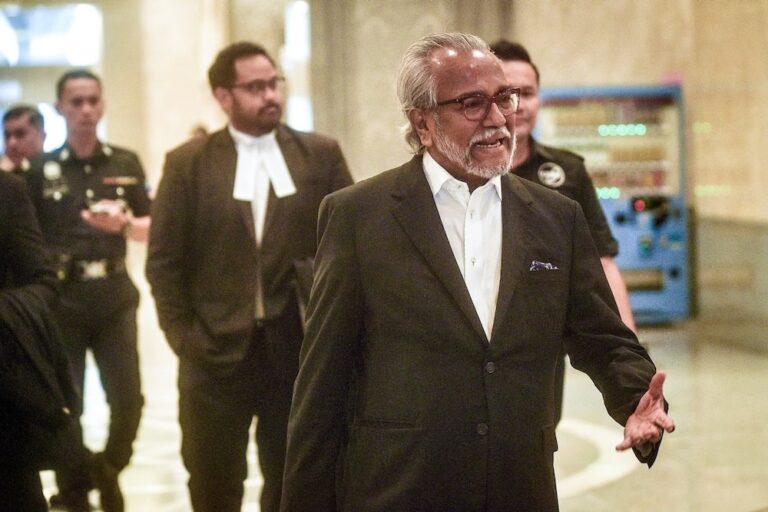(SEAPA/IFEX) – Free speech groups in Malaysia are protesting the verbal attacks from government leaders that have forced a research organisation to retract its report on current economic conditions in the country. The report by the Asian Strategy and Leadership Institute (ASLI) under its Centre for Public Policy Studies (CPPS) had been submitted to the […]
(SEAPA/IFEX) – Free speech groups in Malaysia are protesting the verbal attacks from government leaders that have forced a research organisation to retract its report on current economic conditions in the country.
The report by the Asian Strategy and Leadership Institute (ASLI) under its Centre for Public Policy Studies (CPPS) had been submitted to the government in February 2006 as feedback for the next five-year blueprint for the country. It revealed the findings of studies on corporate equity, education, the civil service and low-income communities. The report was also made available to various political, social and economic bodies.
However, the report turned controversial when independent online daily “malaysiakini” ( http://www.malaysiakini.com ) reported on 23 September 2006 its finding that corporate equity ownership for the bumiputera (ethnic Malays and indigenous groups) may have reached 45 percent, greatly contradicting the government’s official figure of 19 percent. Particularly contentious was its conclusion, based on the figure it derived from its study, that an affirmative action policy framed in 1971 to redress the unequal distribution of wealth between the various ethnic groups has met its 30 percent target of bumiputera equity ownership.
Prime Minister Abdullah Ahmad Badawi and the Malay-based political party he leads, UMNO, trashed the finding and called the study “irresponsible” without providing any supporting data to counter it. The backlash prompted ASLI chair Mirzan Mahathir to retract the report. However, the head of the study, CPPS director Dr Lim Teck Ghee, is standing by it and has tendered his resignation in disagreement.
Local free speech advocates, the Writers Alliance for Media Independence (WAMI), the Centre for Independent Journalism (CIJ) and Aliran, have voiced their outrage at the suppression of academic freedom and freedom of expression. That the report had not generated any controversy until the media highlighted the bumiputera corporate equity finding gives credence to the suspicion that its withdrawal was politically motivated.
In their 12 October joint statement, WAMI and CIJ condemned “the unscrupulous political pressures expressed in ethno-centrist language” that forced ASLI’s retraction. Calling them “an assault on academic freedom”, they urged civil society, especially academic and research bodies, to speak up for Lim as a matter of principle.
In its 13 October statement, Aliran stressed that the issue “touches on important questions of freedom of inquiry and of expression.”
The groups urged the government to reveal its economic data and the methodologies used to obtain them.
As WAMI and CIJ reasoned: “If the CPPS report is flawed or misleading, the case should be put forward with the same or higher level of intellectual rigour. The best weapon for the government to use in rebutting the CPPS finding would be to publicise its own data and analysis.
“We believe that releasing important socio-economic data, from equity ownership to the incidence of poverty, should be a duty of the government and not only at its discretion to report. There [can] be no greater harm to the national interest [than] for national decisions to be made from data only accessible to high-ranking politicians. The validity of this data is then placed beyond academic scrutiny.”
Aliran, too, agreed. “It is of vital importance that the methodology applied in seeking answers and establishing the truth is open and transparent for the findings to have legitimacy and public confidence,” it said.


